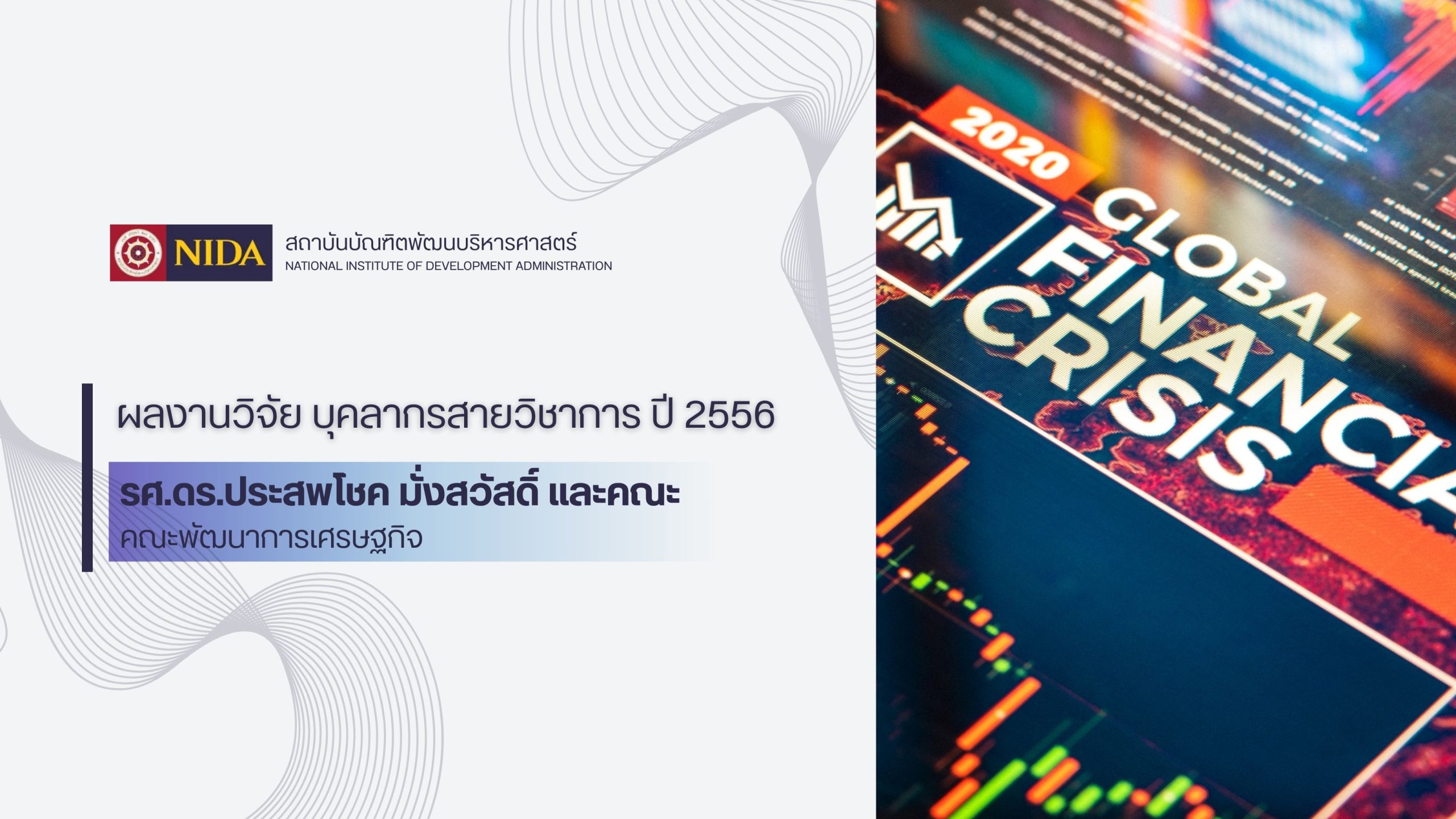Published
–

–
The global financial crisis of 2007-2009 had wreak havoc the world financial systems. It was the worst financial crisis since the Great Depression of the U.S. in the 1930s. Many western medias call it “the Great Recession”; the crisis had compelled central banks around the world to inject liquidity into the markets to alleviate global panic. Bailouts and nationalizations of both financial and non-financial institutions followed. The central idea of this report is to evaluate the impact of the crisis on Thai economy.
The report is organized into four sessions. The first session briefly reviews the origin of the crisis and presents the chronological of major events of the crisis. The global financial crisis of 2007-2009 had its root from relaxed macroeconomic policy, advanced financial engineering, lenient financial sector supervision and regulation, and reckless activities of financial institutions. The crisis was set off by the U.S. subprime mortgage crisis led to worldwide credit crunch and global panic.
Session two investigates the effects of global financial crisis to the macroeconomic situation in Thailand. The estimation results of the transmission channels of the global crisis to domestic economy indicate that the international trade channel has significant negative impacts to the economic activities while the financial linkage has marginal effect to the domestic consumption and investment. In tackling with the effects of the global crisis, the fiscal and monetary policies are employed. The transmission mechanisms of fiscal and monetary policies show that full effect of monetary policy to the real sector takes approximately 3-8 quarters. For the fiscal policy, the effect feels immediately but also vanishes quickly after the end of the stimulus packages. Therefore, the fiscal policy provides most of its effects during 2009, while the monetary policy influences economy in the second half of 2009 and the first half of 2010. The major policy implication of these results is that Thai economy is highly dependent on the export in order to drive the GDP growth. The importance of export is not only from the direct source of demand of production but also the indirect effect via the investment decision. The export-orientated investment projects and the role of multinational companies (MNCs) have the significant effects to private investment expenditure. In addition, the size of impacts from global trade slump is estimated to be too large for the fiscal and monetary policies to offset these adverse effects. Therefore, in the future, this issue should be addressed to prevent the spillover effects of the crisis in the advanced economies to Thailand.
Session three presents the implications of the global financial crisis to financial sectors both globally and locally. For the implication to Thailand’s financial sector, through Thai experts’ opinions, the similar type of financial crisis is less likely to occur in Thailand because of a less complexity of the market. However, that does not mean there will not be any other type of financial crisis. To prevent or minimize the effect of the next financial crisis, Thailand must have fundamentally-sound financial market. To achieve this objective, human development and product development must be parallel. Finally, the last session provides concluding remarks.